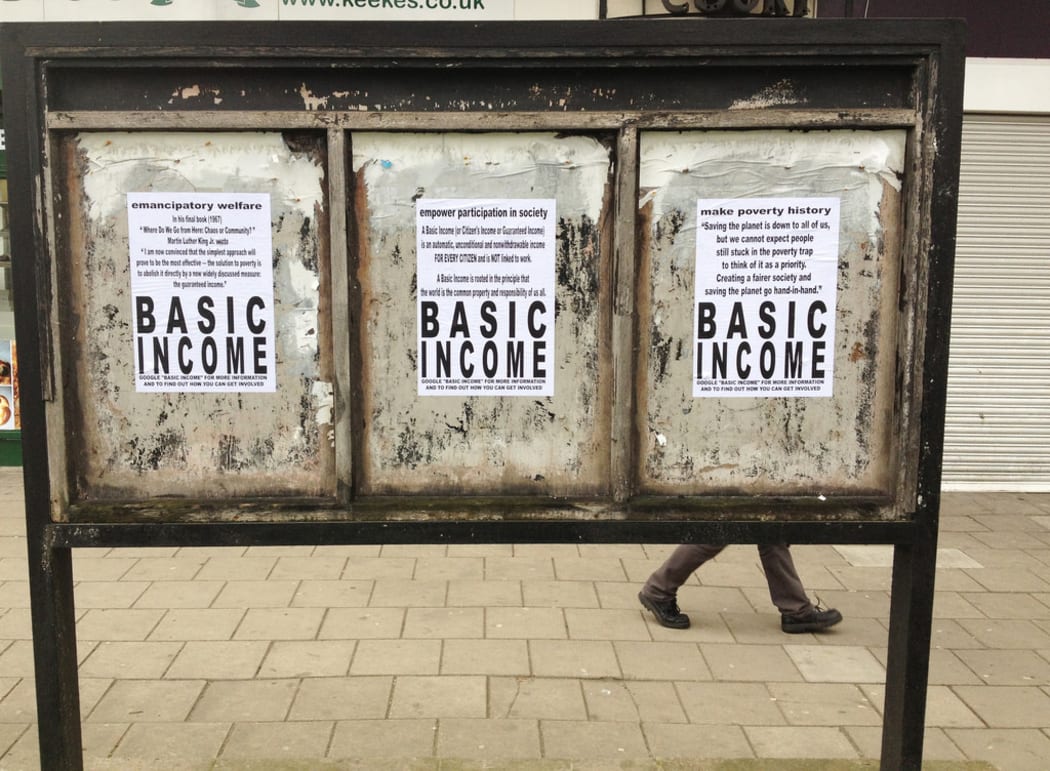The time has come for a universal basic income, says British economist Guy Standing.
The steady drift of money toward capital and away from labour (in the form of wages) has made the current model of income distribution through work untenable, he says.
"The income distribution system constructed in the 20th century has broken down and it will not come back.

Photo: Supplied
"What I mean by that is all over the world the share of national income going to capital and forms of rent have been going up and up and up and the share going to those people who rely on labour is going down and down and down."
Wages for people in insecure, poorly-paid work - for whom Standing coined the phrase 'precariat' - have been at best stagnant and at worst falling, he says.
"So we either accept that millions of millions of people are going to continue to face a life of economic insecurity and the consequences that brings, or you're going to have to build an alternative economic distribution system."
A universal basic income would go a long way to solve growing inequality, he says.
Pilot programmes have had positive societal outcomes.
In a recent programme, all adult residents of a number of Indian villages were given a wage pegged at 40 percent of subsistence.
"Not a large amount, but a significant amount."
Four years later, people's physical health had improved, children were better nourished, school attendance and performance were up and the adults productivity increased.
Dynamism increased and inequality decreased as people felt emboldened to take modest risks and embark on small-scale businesses, he says.
Pilot programmes in the United States and Canada have had similar results.
A pilot in North Carolina found that Cherokee children from families receiving a basic income were a year more advanced in school than those who were not. The basic income meant home life for those children was calmer and less stressed Standing says.
Our existing welfare system is "ridiculously labourist", while the universal basic income would allow for more variables, he says.
"What it does is say 'You only get some benefits if you do labour'. It completely ignores all the forms of work that everybody does regularly - particularly women - all the work we have to do to function as human beings. All of those thing are completely ignored."

Economics professor Guy Standing. Photo: Supplied
Some critics dismiss social dividend systems such as UBI as 'utopian' (the concept crops up in Thomas Moore's Utopia after all) and suggest they devalue work and encourage people to laze around.
That argument is reductive and ignorant of the human condition, he says.
"It assumes we don't want to work, to improve our lives. People want to work, but they don't want to necessarily want to do labour."
Last year at a conference on the future of work in Auckland, Standing spoke on UBI.
It was an idea then-prime minister John Key had little time for, calling it "barking mad".
This was a typical "unthinking reaction", Standing says.
"A rich man's perspective, which I found really objectionable. He didn't look at the evidence, he didn't want to. That's not the sort of thing someone like him does."
Historically, progressive ideas are at first always dismissed as unfeasible, he says.
"Every progressive idea, including the original welfare system - New Zealand really was among one of the foremost leading countries at the end of the 19th century in developing a welfare system - every time a new social policy has come up it's had the same sort of reaction that John Key gave to [Universal Basic Income].
"The evidence shows if you give people security they become better people, they develop their talents, they become better citizens."
Professor Guy Standing is a professor of economics at the University of Bath and the University of London and the author of the recently released book Basic Income: And How We Can Make it Happen. He's also a co-founder of BIEN (Basic Income Earth Network)
He will give two public lectures - Wednesday 30 August, 5.30pm at Waikato University, Hamilton, and Thursday 31 August 6.30pm at the University of Auckland.

